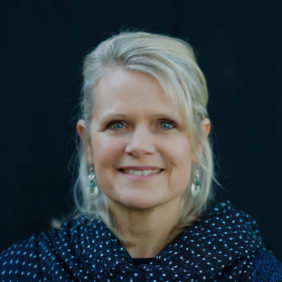For organizations, committing to diversity, equity and inclusion (DEI) means playing the long game. It’s not enough to sponsor ad hoc initiatives—Band-Aids like new mentorship programs whenever issues arise; organizations must reframe DEI in the same way they have had to reframe their digital transformations. What used to be a nice-to-have has become a must-have for future sustainability.
But where do you start your DEI work? DEI is first and foremost an outcome of personal development work and strategic decision making at scale, supported over a prolonged period of time. This, unfortunately, is where we see a disconnect in most organizations.
Where to Start Your DEI Work
Much of the time, DEI initiatives are done to or for people in organizations, not with them. And they’re not integrated as an ongoing developmental process throughout the career lifecycle. Sure, most leadership teams learn how to avoid engaging in overt discriminatory behaviors. But there’s often little to no training on unconscious bias and how to mitigate unconscious bias systemically so that the culture of the organization can evolve.
Achieving DEI as an outcome starts with addressing the emotional intelligence of individual leaders and team members. And because emotional intelligence is a muscle, that work is never done. Organizations and leaders must keep on doing the work, everyday, not just during formal training sessions.
Identify Opportunities
To start your DEI work, leaders must assess the gap between the diverse, equitable and inclusive organization they want and how people working with and for the organization experience it today. They probably need to engage an objective third party to do that work. It’s rarely effective or accurate for leaders to self-diagnose, particularly at the organizational level.
At the team and individual levels, leaders must confront how their personal beliefs, biases and behaviors enable the current state of the organization. Acknowledging that regardless of the personal identities we may hold, we all operate within a society. This society was built upon multiple, overlapping systems of white racial supremacy that privilege some people over others. And no one can acknowledge that truth without feeling some emotion—anger, sadness, fear, guilt, frustration to name a few.
Ensure Equity
While diversity and inclusion as outcomes are important, equity may be even more so. The illusion that we all started with the same advantages when we entered the organization, or that individual effort and performance alone explains why some people advance and some do not, perpetuates systemic inequity. In order for any DEI work to be effective, leaders must recognize, challenge and change how they hire, promote and develop employees.
Create a Community
Hiring consultants, such as a professional DEI educator or inclusion practitioner is a valuable next step, so long as a community within the organization, which includes key influencers, can be engaged to work with them. You can’t outsource DEI work entirely to a third party expert and expect that diversity, equity and inclusion will be the outcome.
Encourage the Work
Leaders show the way by doing the work and being in the work themselves, personally and professionally. This requires courage. In the past, most leaders were not rewarded for challenging HR processes or holding their bosses or peers accountable for non-inclusive behaviors. In fact, the results were often punitive or even career limiting for them.
When you see someone challenging an HR process or holding others accountable in order to advance equity, get curious and engage them. Don’t punish them! Be open to both learning and unlearning new mindsets, skillsets and behaviors. Yes, it will take some time in the short-term to do that. But a more diverse and inclusive workforce means more innovation and mission success in the long-term.

 Heather Leavitt-Martinez (she/her/hers) – Senior Product Manager
Heather Leavitt-Martinez (she/her/hers) – Senior Product Manager Wendy Ryan (she/her/hers) – CEO
Wendy Ryan (she/her/hers) – CEO Shawn Bunger (she/her/hers) – Senior Consultant
Shawn Bunger (she/her/hers) – Senior Consultant Crystal Whiteaker (she/her/hers) – Senior Consultant
Crystal Whiteaker (she/her/hers) – Senior Consultant Gail Finger (she/her/hers) – Senior Consultant
Gail Finger (she/her/hers) – Senior Consultant Monica Silkwood (she/her/hers) – Director of Operations and Experience
Monica Silkwood (she/her/hers) – Director of Operations and Experience Johanna Lyman (she/her or they/them) Senior Consultant
Johanna Lyman (she/her or they/them) Senior Consultant Sherri Horan (she/her/hers) – Senior Consultant
Sherri Horan (she/her/hers) – Senior Consultant